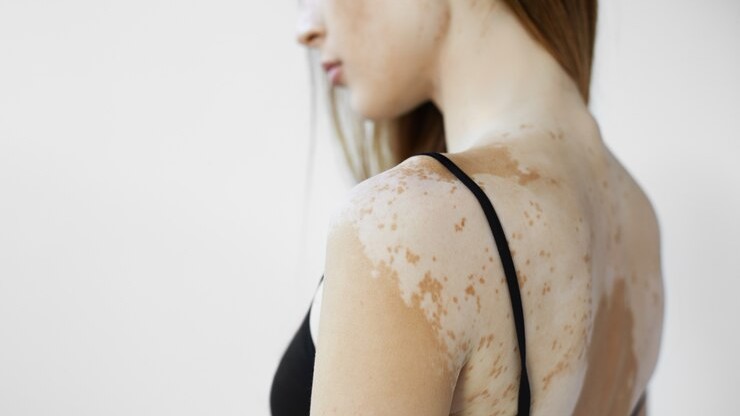Our appearance plays a significant role in how we perceive ourselves and interact with the world. While beauty standards have begun to shift towards inclusivity and self-acceptance, living with a visible skin condition like vitiligo can still pose immense emotional and psychological challenges.
Understanding vitiligo
Vitiligo is a long-term skin condition characterised by the loss of pigmentation, resulting in white patches on the skin. It occurs when melanocytes, the cells responsible for producing skin pigment, are destroyed or stop functioning. Though the exact cause of vitiligo is still unknown, it is believed to be an autoimmune condition where the immune system mistakenly attacks the body’s own cells.
Despite being medically asymptomatic—causing no pain, itching, or discomfort in most cases—vitiligo’s impact goes far beyond the physical. It profoundly affects an individual’s emotional health, self-image, and overall quality of life.
The connection
There is a profound link between skin conditions and mental health. Skin is our largest organ and serves as the interface between our inner and outer worlds. When something alters its appearance, it can significantly influence our mental and emotional state. Dr. Madhavi Valvi, Dermatologist and Skin Specialist, elaborates on this connection, saying, “It is unclear if vitiligo triggers mental disorders or if mental disorders trigger vitiligo, but each one affects and worsens the other if present at the same time. It should be noted that vitiligo is usually asymptomatic, so its effect on quality of life is much more related to psychological problems such as lack of self confidence, unpleasant body images, unsuccessful social relationships and lower quality of marital relations than the exclusive physical issues.”

Dr. Madhavi Valvi |
The psychological impact of vitiligo is particularly pronounced during adolescence, a time when identity formation and social acceptance are at their peak. The visible white patches may cause individuals to feel different, alienated, or judged.
Finding strength in visibility
For many individuals with vitiligo, the journey towards self-acceptance is marked by highs and lows. Content creator Aastha Shah, 27, shares her experience, saying, “Vitiligo has been more than a physical journey; it deeply affected my mental health, especially during my teenage years when self-esteem is fragile. I remember feeling isolated and constantly asking, ‘Why me?’ But my dad has been my rock throughout this journey. His support helped me shift from feeling invisible to embracing visibility. Today, I proudly show my vitiligo, knowing that confidence starts from within, and every flaw can be a source of strength and beauty.”

Aastha Shah |
Setting a powerful example of beauty and courage, Logina Salah became the first contestant with vitiligo to compete in the Miss Universe 2024 pageant. Her participation marks a significant step in redefining beauty standards on a global scale. By confidently showcasing her vitiligo on such a prominent stage, Logina not only challenged societal perceptions but also empowered countless individuals to embrace their unique differences.
Addressing the psychological impact
The psychological effects of vitiligo often include anxiety, depression, and a decline in self-esteem. These issues can manifest in avoidance of social interactions, reluctance to form relationships, and a reduced sense of personal worth. Mind coaches play a critical role in helping individuals reframe their thoughts and build emotional resilience.
According to mental wellness expert Rhea Mehta, 42, “The mind often fixates on what we perceive as flaws, amplifying their importance. With visible conditions like vitiligo, this mental focus can overshadow every other aspect of one’s identity. It’s crucial to shift from external validation to internal acceptance and remind ourselves that self-worth is not defined by appearance alone. Tools like mindfulness, affirmations, and therapy can be transformative in rebuilding confidence.”
Building a supportive environment
Acceptance and understanding from family, friends, and the larger community play a crucial role in helping individuals with vitiligo navigate their mental health journey. Awareness campaigns and representation in media have also helped challenge stereotypes and normalise vitiligo, empowering individuals to embrace their unique beauty.
Healing inside and out
The journey with vitiligo is as much about mental health as it is about physical management. Seeking support from mental health professionals, dermatologists, and support groups can make a significant difference.
By fostering self-acceptance, encouraging open conversations, and creating supportive spaces, we can help individuals with vitiligo transform their challenges into sources of strength and pride. In doing so, we remind ourselves that beauty truly goes beyond skin deep—it lies in the courage to embrace every part of who we are.
